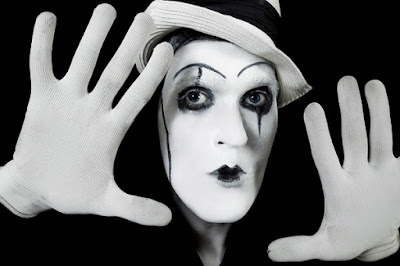 |
| Tips on great camera performance |
1. Showing v. Telling
A critical acting tip is to remember that you are showing a story, not telling it. The advice may sound simple at first, but it's harder than you might think to thrill your film audience. Simply reciting your lines and obeying director's instructions won't be enough. The acting involves the whole of your character or personality, in other words, your Essence per
By showing the story, you should act like a magnet for the audience, attracting and involving them in the story and its rhythm and changes.
2. On Listening
“Just listen,” is perhaps the best acting tip you can receive. As an actor a good deal of your work will be scripted, but just reciting lines is not acting. You must actively respond to the material you are given and to your fellow actors. Listening, constantly and vigilantly, is the best way to do this. Listening to your fellow actors helps you to respond naturally and flexibly. Listening to yourself provides an important check for your own performance, allowing you to gauge how well you are working with the material.
3. Be Aware of Your 'Habitual Behavior' and Gestures
Many of us have certain habitual or fixed behavior normally we are not conscious of-like a particular 'standing style' like weight on one leg, nodding our heads while talking, saying 'um'... Or 'array' main ne kaha
Be aware of these behaviors and gestures because this could not match with a character's behavior and therefore are irritating and deadly for a good performance. Ask your friends or the best to your acting coach to identify such odd behavior and correct them with practice
4. Performance Tension and Jitters on a shoot
You go for a shoot. Either immediately or after a considerable waiting time in artists or make up room, you are called to perform in your scene. You arrive and stand at designated place and find yourself in a total chaos. People are running around, shouts, adjustments of lights, camera angles and focus, makeup artist patting and giving your face final touches and your co-actors muttering and remembering their lines.
The result- tension builds up in your body and the mind gets totally blank!
The moment director says ‘action', your throat is dry, you forget your lines, you sweat and eventually mess up your performance
Why? Because you observe that you are being observed. Yes, all are staring at you, including the director.
When an actor becomes aware that he/she is being observed by 'them', tension finds its way into the actor's life. The key factor here is 'aware'. The actor must first become aware of being observed before the observers can cause the actor to suffer with tension and 'camera fright'.
So the "trick" is NOT
Try the following:
- Rather than looking at the people around you, immediately select an object on the set-may be something near the camera, a prop, may be a director's collar or anything and continue looking at it till you hear the shout 'action' from the director. And then just go into your character and shoot your line without bothering about your performance.
- Create a fourth wall: You are not looking at the right, left or behind, but at the front, so that's a fourth dimension which you are looking at. Block that view by creating a familiar wall. It could be a wall of your bedroom, study or kitchen or sitting room and substitute your front vision by this wall called as fourth wall. Got it?
- Take a deep breath and go on giving auto-suggestion
to your mind like, 'I'm good', 'I'm so and so 'character', 'I remember my lines', 'I'm going to give great performance' - Remember, you are a unique actor and there is nobody like you. Just don't bother and shoot. There could always be another 'take'. The director wants just one good 'take'
No comments:
Post a Comment